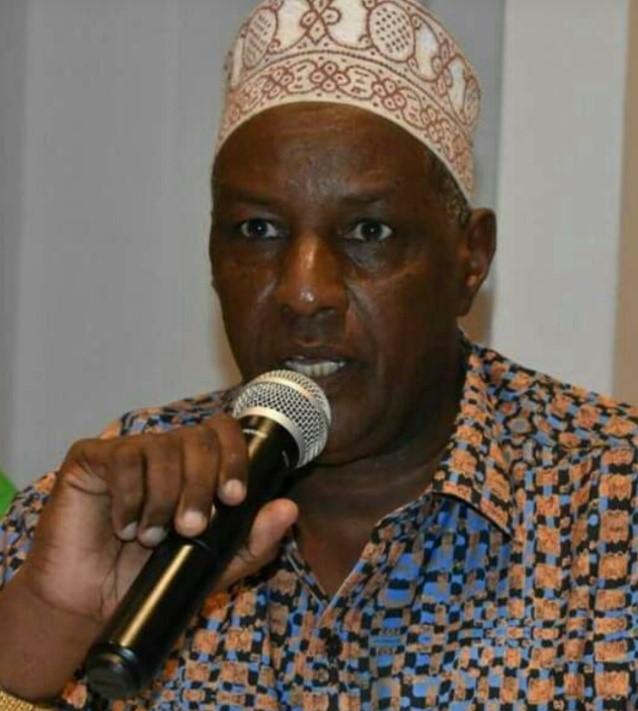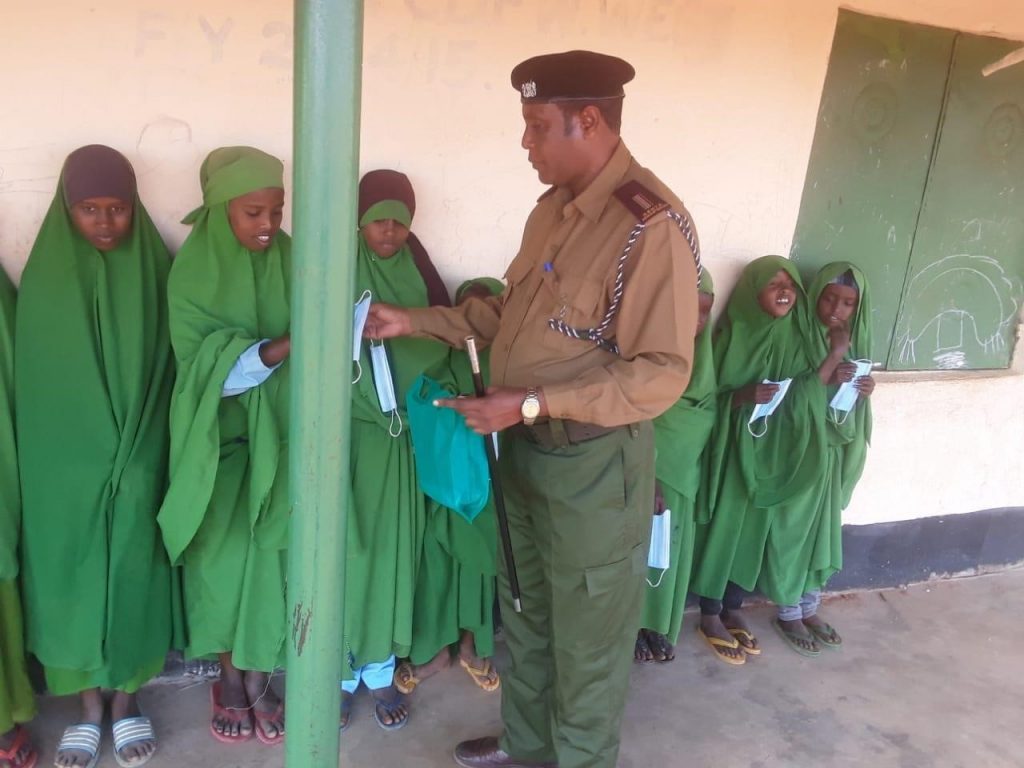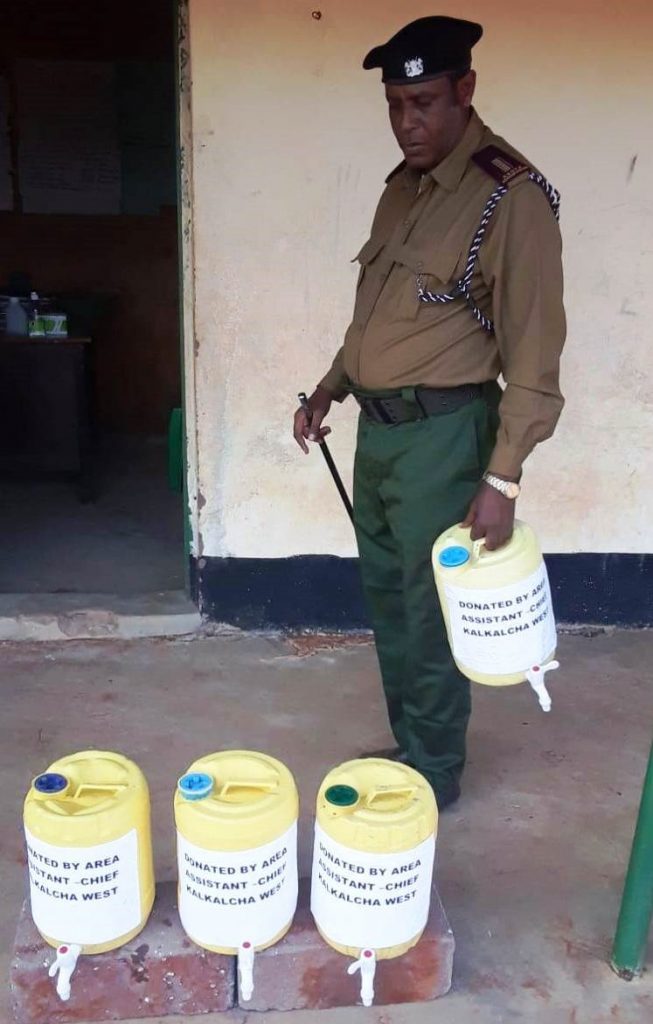Back to school as Wajir County braves COVID-19
“The brave man is not he who does not feel afraid, but he who conquers that fear,” said Nelson Mandela.
These words perfectly fit Wajir County’s handling of Covid-19. One of the highest recommended weapons against the deadly virus is washing of hands. However, hand washing is not the sort of advice given to a people who lack water. Wajir is a place where locals approach visitors to ask for water. It’s a thirsty county.
Yet Covid-19 did not spell disaster for these hardy people of North-Eastern Kenya, who walk tens of kilometres in search of water. After hunkering down for months from the disease, the people of Wajir came out fighting. As schools reopened in January 2021, the local leadership stepped up to urge parents to return their children to class.

The county’s political leaders and the local administration got together with a radio station to wage a concerted war against Covid-19’s effects “We recognised our call as leaders to stand up and be counted in this time of need and fear,” says Issa Garore, the Member of County Assembly (MCA) for Tarbaj Ward.
“Covid-19 has affected the economy of our people,” Mr. Garore says. “It was stopping many children from reporting back to school. So we began to distribute face masks and sanitisers in public schools. Many parents have lost their incomes. We felt driven to make the necessary sacrifice to finance the safety of our children. Our people needed us to show leadership.”
As with other parts of the country, parents in Wajir feared that their children could be infected with the lethal Corona virus in school. Garore and other leaders took charge and convinced parents that the children were better off in school than they were at home. The parents agreed.
“I spoke to parents and teachers. The good thing is that I am a teacher by profession. I taught for many years and rose up to management level. I understand how schools run. That put me in good stead to effectively communicate with them,” Mr. Garore says. Determined in the face of fear, Garore and other leaders set about visiting schools. They found that schools were comfortably setting up classes under trees to beat the challenge of social distancing protocol.

“Stopping the children from mixing is challenging but spacing them out during class has been doable, thanks to outdoor learning,” says Garore. “I visited a number of schools and found the arrangements very effective. Some children were sitting at extreme corners within classrooms and some classes were running under trees. It looks doable and comfortable. Resultantly, the number of children reporting back to school is also fairly high.”
Garore did notice one long-running problem, though: “Our schools are under-staffed. There aren’t adequate teachers. Teacher-student ratio is very low. I’ve talked with the Parents-Teachers Association in my ward. We’ve agreed that they will employ extra teachers and I will pay them from my pocket. The level of understaffing is serious in all the schools.”
Wajir and other counties in Kenya’s northern regions have suffered a shortage of teachers following a spate of terror attacks in which several non-locals were killed. Most teachers had come from other parts of the republic.
Asked why he is sacrificing so much, even being willing to pay extra teachers, the MCA says: “I’m their leader. I represent them. I appreciate that the season has been difficult for them. Leadership is compassion. I felt I could not ignore their plight. They are my people after all. I also wanted to show goodwill and be an inspiration to other leaders.”
The work of Mr. Garore, the local chief and other leaders is confirmed by Ms. Halima Kahiya, a radio presenter with Wajir Community Radio, 90.9 FM. “The MCA and the chief stepped in to distribute masks, sanitisers and hand washing facilities,” she says.

Without this intervention from the top, she is doubtful the people of Wajir would have ridden out the Covid-19 storm. “Members of this community live below the poverty line,” she explains. “Decent masks cost Ksh. 100, basically a dollar. How could they afford if they live on less than a dollar a day?”
The leaders may not be able to get masks for all children. Therefore, the locals have learnt to craft their own masks. “Yes there’s a huge effort towards training locals to make their own masks. This has helped.” She observes that one of the outcomes of Covid-19 has been an increase in tree planting by locals. Why? “So there may be more trees under which their children can learn in the future.”
Halima’s Wajir Community Radio has been running a Back to School campaign for children in partnership with Centre for Behaviour Change Communications (CBCC) with support from UNICEF Kenya. The campaign started on the 21st of December 2020 and will run till the 27th of February 2021 and has been running in the DijiRedio Community radio platform of which Wajir Community Radio is part of. DijiRedio consists of 43 community radio stations in 40 counties out of the 47 counties in Kenya and is coordinated by CBCC who are running this campaign. The main aim of the campaign is to provide information and awareness in the importance of children going back to school, how to keep them safe through the COVID-19 pandemic, sensitize the communities on mental health and psychosocial support for children, child protection against abuse and gender based violence, adolescent pregnancies and early child marriages. One of the driving theme of the campaign is to motivate the communities to own the challenges they face and generate their own community solutions. Campaign also works at dispelling myths and misconceptions in regards to COVID-19 by providing the right information and highlighting the national help lines for additional information by dialing 719 or *719#, the child protection helpline 116 or WhatsApp number +254722 116116 or email 116@childlinekenya.co.ke and the Gender based violence hotline 1195.
Our Services
View our Centre for Behaviour Change and Communication Services.













